Long to Belong.

It is human ' nature,' to long for mountains and waters.......
It is not, however, in everyone's genes - to long to belong in a Chinese Garden.
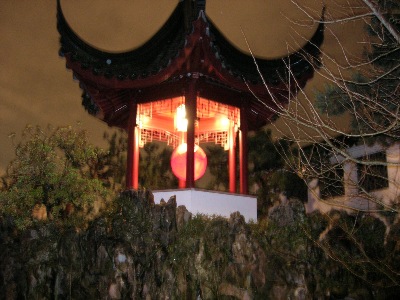
As a visitor yes; not so though, as a resident or to belong as part of the
furniture [ so to speak ].
That takes a whole new kind of light......
- Does Your compass, set the scene of a Chinese garden, as a kind of mediator ?
- Do You feel daily inspired to expand, to proclaim and to uphold the sino-logic, behind one ?
We at Chinesegardenscene, hope, that the following thoughts;
from ancient of times, will be an encouragement, to You;
if you do.......
Notions & Emotions
In 1956, Professor Chen Congzhou, wrote a study on Chinese gardens -
Suzhou yuanlin.
It included two essential notions....
- xing - to be aroused by past events; a realisation,of.
- bi - to draw comparisons to, or imply a resemblance to.
Nature Loving
Chinese culture, dictates, that to attain to the peak of Spiritual cultivation;
man must truthfully love nature, above the things of the world [ classed as merely dust i.e. from dust they came and back to dust, they will go ].
To do this entails, reaching an understanding of the deeper things of life, that can connect us, back with nature.
Chinese gardens, certainly purpose this outcome.
Peace & Solitude
The great Chinese philosopher Lao Tzu, [ earliest reliable reference to him, was in 100 B.C.E ] said in oriental understanding...
Inner peace does not result from:
- seeking immortality
- needing notoriety
- wanting status
- desiring wealth
That is because, in Occidental understanding, too:
- those with hope & faith, do not fear death.
- those who are modest, do not require fame.
- those who are humble, do not crave for power.
- those without covetous desires, do not need wealth.
Purity of Heart
Poet and one time owner of the Nanjing, Garden of Accommodation - Suiyuan [ which was destroyed in 1853 ];
Yuan Mei [ 1716-1798 ]
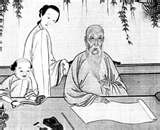
In his 1749 Record of same - suiyuan ji
tells that he did not refute the concept of ' obsession,' for Chinese gardens;
rather, likened devoted ownership, to scholarship and sighted similarities of 'tree raising,' with the rearing of human offspring.
On the matter of Poetry - he elucidates the emotional appeal [ as with Chinese gardens ];
- touching the heart.
- scroll concealment & disclosure - visually pleasing & surprising.
- offering textures to be touched.
- perfumed blossom, breathed in.
- elemental movement, delighting the hearing.

In Wang Bi's commentary of Yuan Mei's - 5th Garden Record [ 1758 ]; he notes that giving ' objects,' adoration, damages them - yet if those objects, are ' hills and gardens.'
Magnificence is no greater than these.
Further, it can be interpreted ' Chinese Gardens,' are sites of Purity.
Yuan Mei, in the same account, also recounts the virtues of:
' Keeping,' one's origin in mind; and
' Maintaining,' the association of one's roots.
Quietism & Quietude
letting go of ' worldly,' objectives.
a state of calm, quiet and peaceful, tranquility.
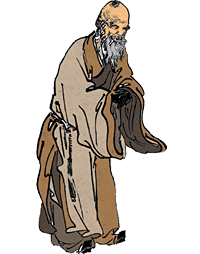
Lao Tzu, said that his Taoist words in the Tao Te Ching, were:
simple and userfriendly;
yet why did people not understand or use them ?
Simplicity of Necessity
Mencius, spoke of affluent excess pleasures, taken with many.
Confucius, spoke of simple necessary pleasures, taken with only a few.
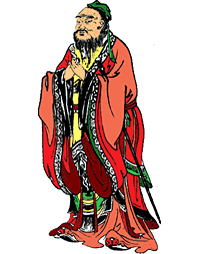
Sima Guang [ 1019-1086 ] was born in the Northern Song Dynasty.

Literatus Sima Guang, excused himself with his critics, for taking delight in everything that the world rejected, as lowly [ yet he was not selfish with it either ].
In his literary masterpiece, known as " History As a Mirror," he expressed views that if anything;
transcended more traditional Chinese concepts of his time.
From Volume 23 - He stated:
" Promises between different nationalities, must be kept."
From Volume 69 - He questioned:
" How can we consider one state [ states of the dynasty ] as legitimate and other states as illegitimate ? "
From Volume 138 - He talked of:
" Appointing talented people, revitalising abandoned things, caring for agriculture, commending morality and justice and reviving useful old customs."
From Volume 175 - He spoke of:
" Praising national integrity."
From Volume 196 - He commended:
" The outstanding upright characters of the minor nationalities."
And from Volume 285 - He condemned:
" Those persons who betrayed their country, to seek power and wealth."
These, are all commendable things;
however, as with all men -
we are imperfect and he also perhaps made the later mistake, of practicing a policy of compromise and recession, which harmed the true unification of his people.
History Repeats
Yuan shi [ garden history ]
Literatus Chen Jiru [ 1558-1639 ] wrote of four difficulties with Chinese gardens -
establishing them:
- to create fine mountains & waters.
- to readily, have fine old trees.
- to plan.
- to assign gardens and their elements, names.
and three easy things [ sadly ] with Chinese gardens -
keeping them:
- they can be seized by power.
- time can render them, unkempt.
- uncultivated; they become vulgar.
Please visit Yuan Ming Yuan, through LINKAGE:
The Garden of Perfection & Brightness
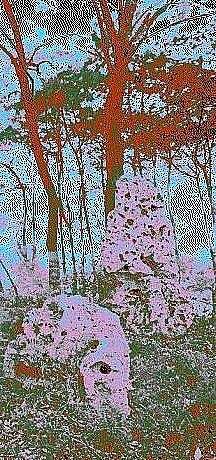
Everything can change; yet only if we let it.
